It is clear to me, viewing Australia's problems with addressing "growth" from viewing the U.S.'s problems in doing so, that both governmental systems are straightjacketed into the same capitalistic premise: that growth is not something to be concerned with; that promoting unlimited growth is possible.
Here's my analysis of the present U.S. presidential campaign that shows the futility of hoping a candidate for such high office will bring any kind of significant change to pursuing growth. Money and power determine their candidacy and their politics. (Although, as usual, I will vote for the one who just might bring a small amount of change, and that is in this case Obama.
Analyzing the 2008 US Presidential Election
By Richard Pelto
Television and newspaper coverage of the election process can be like entering some kind of weird third dimension. Because coverage is essentially secretarial-like rewrites of press releases, and electoral lying is given euphemistic names like "fact-challenged," or "distortion,"the average-citizen reader can only wonder what is going on.
In addition, columns adjoining coverage of the election provide superficial facts but little analysis about an economy being rapidly flushed down a toilet because of widespread excesses of greed, next to a hard-to-justify expensive military "mistakenly" raining bombs on civilians.
Most importantly missing from the journalism 2008 election coverage is how the GOP-Demo campaigns mirror each other on issues like Afghanistan, campaign finance, the death penalty, gun control, housing, immigration, stem-cell research. Only minor, tactical differences separate the two candidates on issues like health care, Iran, Georgia, social security, and taxes. On the abortion issue there is substantive difference. And Obama is now providing welcome fresh-air change of our "globalization" policy.
But even the spin-meisters of the campaigns note similarity. Tucker Bounds, a spokesman for McCain-Palin, made the case that Obama's response to the bail-out of corporate despair was derived from McCain. "Whether calling for a bipartisan oversight board or prohibitions on golden parachutes, Barack Obama is simply following in John McCain's footsteps while trying to respond to this financial crisis, as he followed in John McCain's footsteps when he attempted to respond to the recent crisis in Georgia," he said. "Again, Barack Obama has shown indecision and a lack of leadership at a time when the American people need certainty." The final sentence is representative of the mindless rhetoric that characterizes U.S. elections today.
To analyze what "change" these candidates portend we must begin with the coverage in Iowa which began with the press apparently and slavishly following whatever consistency existed in the two viable party’s electoral narrative. Iowa provided the introduction of Obama’s unquestioned repetition of "change," and, once the campaign was down to two candidates, his opponent, despite the similarities and mirroring noted above, attempted audaciously hijacking the word "change." The journalists tirelessly parrot the terms, print polls that attempt to determine which word struck a deeper chord in various age groups, and then pontificate on consistency of message and the polls’ statistical indicators, assuming apparently that the public was well-informed.
But no reporter seriously asks or presents just what "change" might mean either in an Obama presidency, or the more unfathomable "change" parroted by the GOP-nominee, John McCain. Both are "establishment" candidates, and thus both are beholden to the money/power that buttresses it.
It is a given that the public, today, for many easily-justifiable reasons, is very desirous of "change." and some forms of it is likely with Obama. It is particularly informative, then, to carefully note that Obama’s governmental prescription is similar to decades-long policy. Analysis makes clear one has to wonder how much "change" Obama would bring. On Iraq, he initially did not vote for the war’s authorization. That’s clearly different from Bush who made up journalistically sparse-questioned "facts" that led us into it. But as the many years of our occupation of Iraq passed Obama swung more and more toward Hillary Clinton’s position that an indeterminent number of troops and bases must remain there until some undefined advantageous time to pull them out. Thus, after scratching the surface, Obama’s position isn’t substantively different on Iraq nor with George W’s on the so-called "war on terrorism," especially given Obama has indicated he would aggressively pour those troops taken out of Iraq into Afghanistan and Georgia.
One must then assess the foreign policy philosophy of the candidate. Bush’s present focus on endless (and financially draining) "warring" with Islamic militancy appears to be little different from what Obama’s policy would be, given his appointment of Zbigniew Brzezinski as his chief foreign-policy advisor. This is the man who funneled large amounts of money to a wide range of Islamic fundmentalists like Osama Bin Laden in order to create more resistance to the Soviet Union, and is now advising about the Islamic-like danger posed to Israel by Iran. This "change" is decidedly minimal. In addition, another advisor, Sarah Sewall, who heads a human rights center at Harvard and is a former Defense official, wrote the introduction to General Petraeus’s Marine Corps/Army counterinsurgency handbook, the handbook that is now being used worldwide by US troops in various killing operations. Is she a likely means to "change?" Do these "advisors" help define this great "change" that Obama will bring about that the candidate and press herald?

So who does Obama choose to provide advice on how to change policy toward it? It’s Anthony Lake, who pledged to support a World Bank/IMF overhaul of the Haiti economy after overthrowing Aristide, which resulted in an increase in malnutrition deaths among Haitians and set the stage for the current ongoing political and ecological disaster in Haiti.

Many are dissatisfied with the costs and impacts of Bush’s unconditional support of Israel. So what kind of "change" would Obama’s advisor, Dennis Ross, bring to this policy, given he pushed the principle that the legal rights of the Palestinians, the rights recognized under international law, must be subordinated to the needs of the Israeli government to expand into doing whatever they want in the occupied territories. And Ross was one of the people who, interestingly, led the political assault on former Democratic President Jimmy Carter after he wrote a recent book critical of Israel. Would he help in being an agent of "change?"
It is beyond doubt that Obama will exacerbate our present policy of unsustainably importing large numbers of illegal-immigrant cheap labor. He will undoubtedly create an even more porous border policy through his support of a variety of political measures facilitating the importation of millions of illegal immigrants. These measures incentivize immigrants' arrival by rewarding their coming here, either through amnestying the illegality of entry or providing such things as free or subsidized schooling, welfare, housing and medical care. And both candidates promulgate their immigration "changes" before activist Hispanic audiences calling for even more porous borders. Thus they make a mockery of professed concern for population-growth exacerbated problems involving the environment and growth management.
The issues not covered: too rapid population growth, rapidly receding availability of strategic resources, and ever-expanding ecological degradation, cry out for emergency "change." This is made clear by the disconnect that exists between peak oil concerns and the presidential race. As prices at the pump rise, each candidate is now talking about their so-called "solutions" to the problem. None of which seriously address population growth and its exacerbating impacts on consumption. Despite clear new warning signs from Russia, Saudi Arabia, Mexico, and Nigeria that peak oil is apparent, McCain made clear he would remain unwaveringly oblivious to the true causes of rising fuel prices, preferring initially to dwell on irrelevant—actually, counterproductive—measures like suspending the federal gas tax during the summer months or taxing Big Oil. This is akin to thinking one is curing melanoma simply by putting a band-aid on it.
Here’s, first, a quick summary of the two candidates positions on energy, and then a more extensive attempt to analyze their positions and the reasons for them.
Obama incorporates improving national energy efficiency as a central plank of energy policy, in housing and the economy overall. McCain is silent on the topic, utterly silent....Both support clean coal. Both support cap and trade. McCain supports nuclear and more drilling, Obama is silent on both....While both candidates have policies on CO2 abatement, neither even bothers to mention the more immediate, critical issues of sulfur, nitrates, and particulates in our air that cause real, measurable damage to people, plants and all other animal groups. ...Both call for more hybrid cars and electric cars, but neither provides the meaningful financing to encourage the shift to cars that are considerably more expensive than the present auto fleet.
"John McCain is energy illiterate. He's just witless about this stuff," Matt Simmons, prominent oil-industry investment banker and lifelong Republican recently stated at a conference meeting involving a dozen oil and gas men in Lafayette, La. He surprisingly added, "I'm supporting Obama." He then said, "He's just witless about this stuff. McCain says things like, 'Oh, we're going to wean ourselves off foreign oil in four years and build 45 nuclear plants by 2030.' He doesn't have a clue. Here's a man who for at least the past 15 years has strenuously, I mean strenuously, opposed offshore drilling. And now it's 'drill, drill, drill.' And he doesn't have any idea that we don't have any drilling rigs. Or that we don't have any idea of exactly where to drill."
Examining the "oil dependency" positions of the candidates' energy advisers gives us little hope our newly-elected government will meet the peak-oil challenges head-on in 2009. They are Jason Grumet for Obama and James Woolsey for McCain. Woolsey’s public comments do indicate he has at least some understanding of the peak-oil issue. But both Grumet and Woolsey say in the campaign that our "oil dependence" is a problem, and both overstate that plug-ins, flex-fuel vehicles, alternative/renewable fuels can remedy the situation. Obama's adviser serves as executive director of Washington's influential National Commission on Energy Policy (NCEP). The commission's December, 2004 report, "Ending the Energy Stalemate," tells us a lot about what the candidates' advisers are thinking about U.S. oil security. McCain's adviser James Woolsey also serves as one of the NCEP commissioners.
The principal NCEP report co-chair was John Holdren. Dr. Holdren's position on peak oil is therefore of considerable interest in so far as it appears to have influenced the views of the presidential candidates' energy advisers. The question that needs understanding is when will global production of conventional petroleum reach a peak and begin to decline, as U.S. domestic production did around 1970, and as most graphs now show has occurred since 2005. Holdren thinks peak oil is "not very important" because we need to cut our oil dependence in any case because of 1) global warming and 2) supply-side security risks.
Grumet and Woolsey’s position is exactly the same—peak oil concerns are overridden by the environmental (climate) problem and geopolitical risks to the oil supply.
Reaching this peak globally will create what is now occurring: large increases in the price of oil, plus a costly and demanding scramble for alternatives to fill the widening gap created by too-rapid population growth (especially in the U.S.) between the demand for liquid fuel and the supply of conventional petroleum.
The preponderance of evidence says that the peak of conventional oil production is occurring now whereas oil-supply optimists say it probably won’t happen until after 2030, perhaps not until after 2050. Similar arguments go on about conventional supplies of natural gas, the total recoverable resources of which are thought to be not greatly different, in terms of energy content, from those of crude petroleum.
It is clear that the U.S.’s present heavy oil dependence carries substantial economic and political risks in a world where high proportions of the reserves and remaining recoverable resources lie in regions that are unstable and/or controlled by authoritarian governments that have sometimes been inclined to wield oil supply as a weapon. It’s also clear that world oil use is a huge producer of conventional air pollutants, as well as being about equal to coal burning as a contributor to the global buildup of the heat-trapping gas CO2. Given these liabilities, it makes sense to be looking urgently for ways to reduce oil dependence no matter when we think peak oil might occur under business as usual.
A "climate first, peak oil not" view dominates mainstream thinking in Washington, but neither Dr. Holdren, or the presidential advisers say anything appreciative of the importance of the timing of the peak.
In a Mary O’Driscoll interview, Grumet reacted to a question about peak-oil impact, "We were intent, Mary, on not having kind of a Robert Ludlow dirty bomb, you know, airplanes into cooling towers. I mean what we looked at was a number of very, unfortunate, but very realistic events. Civil unrest in Nigeria; unfortunately life is imitating art. I mean we're seeing that now reported in newspapers, coupled with some low-tech terrorism. We looked at al Qaeda hijacking a tanker and crashing it into the Port of Valdez, and at a major explosion at a natural gas facility in Saudi Arabia, which would have taken natural gas off the market requiring them to use crude oil to replace their own domestic energy. And then some terrorism that just caused a real anxiety among the oil producers in Saudi Arabia. You put all that together, you take 3-and-a-half million barrels off the market and let me read to you from my cheat sheet of doom; gasoline prices at $5.74 a gallon, global oil price at $161 a barrel, a recession, two consecutive quarters of a drop in GDP, a drop in consumer confidence by 30 percent, inflation 12.6 percent, a 28 percent decline in the S and P 500, as well as I think some very realistic foreign policy concerns... " Thus rather than focus on peak-oil likelihood and impact, he connects oil dependency with the so-called war on terrorism.
Later Grumet was asked this question by Mary O'Driscoll: Well then, what do we do in the short term?
Jason Grumet: We eat it. I mean this is the reality that I think we were hoping to reveal. You know when the national commission put out its report last December the number one priority issue that we addressed was the need to deal with domestic oil security. I think that we have -- the SPRO is a significant buffer. It's very good news that our economy uses about half as much oil to produce the same GDP now as we did before the first oil embargo. So we are in a better position in some regards than we were before, but we use 25 percent of the world's oil. We possess 3 percent of the world's reserves and we are fundamentally now in a system that is stretched so thin ... now if it wasn't civil unrest in Nigeria it could've been a labor strike in Venezuela. I mean these are very real risks and the answer is prices go up.
Mary O'Driscoll: Right.
Jason Grumet: And we probably wind up using our SUVs a little bit less and saying to ourselves, why hadn't government done something to protect us from this?
Mary O'Driscoll: But I mean you're talking about a recession kind of situation, so I mean will we even be able to drive our SUVs at that time? I mean it's a little unnerving I must say.
Jason Grumet: I did see, I saw the Mad Max movie over the weekend and it kind of prepared me for the realities of $160 a barrel oil.
Mary O'Driscoll: Oh boy!
Jason Grumet: These are career-ending prices for many people in this town [Washington] and I think that, our hope is that collectively the Congress and the administration will start to see that not only do we have to work on these issues as matters of national energy policy, that these are issues of national security, economic strength and our foreign policy prerogative.
It is apparent that Grumet fears the potential effects of a sudden withdrawal of 3.5 million barrels per day (mmb/d) from the world market, and he notes that this would result in "gasoline prices at $5.74 a gallon, global oil price at $161 a barrel, a recession, two consecutive quarters of a drop in GDP, a drop in consumer confidence by 30 percent, inflation 12.6 percent, a 28 percent decline in the S and P 500."
At the end of 2004, the EIA data indicates that world oil production (crude + condensate + gas liquids) stood at 79.905 mmb/d. Grumet doesn’t note that at only 1% annual growth, which is below the historical average since 1983, the average daily oil supply for 2007 should have been 82.326 mmb/d. What was it? Supply stood at 81.190 mmb/d, a shortfall of 1.136 million barrels with respect to the modest 1% growth target. The biggest producer, Saudi Arabia, had basically flat-line production despite repeated promises of increasing production. Most of the "growth" that did occur was in gas liquids, which are not used as a transportation fuel. This has not been a sudden oil shock, but rather forms part of a gradual ongoing oil crunch that some call "peak oil."
Thus, neither Jason Grumet or James Woolsey are completely uninformed about potential oil shocks, but they appear to be very badly informed about the ever-accelerating peak oil squeeze resulting from politically-encouraged population growth mostly in the U.S. but also to a lesser degree in Europe.
The energy plan of Barack Obama generally follows the following NEPC guidelines:
- Increasing and diversifying world oil production while expanding the global network of strategic petroleum reserves.
- Significantly raising federal fuel economy standards for cars and light trucks while reforming the 30-year-old Corporate Average Fuel Economy (CAFE) program to allow more flexibility and reduce compliance costs. New standards should be phased in over a five-year period beginning no later than 2010.
- Providing $3 billion over ten years in manufacturer and consumer incentives to encourage domestic production and boost sales of efficient hybrid and advanced diesel vehicles.
"Increasing and diversifying world oil production" obviously did not happen, and it's unlikely to happen. New CAFE standards were enacted in the Energy Independence and Security Act (HR. 6) signed into law in December, 2007, but are belatedly to be phased in by 2020. The NCEP report also advocated ramping up alternative fuels like ethanol to "help to diminish U.S. vulnerability to high oil prices and oil supply disruptions while reducing the transportation sector’s greenhouse gas emissions." Unforeseen cost consequences of this policy soon became apparent, along with its dimunitive impact on our reliance on oil.
Obama’s plan now is to cut oil imports by setting tough new fuel-efficiency standards for cars and trucks and providing retooling assistance to the automakers to help them meet these standards. Also by increasing biofuels production and improving the efficiency of industrial oil use. All these measures would have been undoubtedly helpful 10 years or more ago, but the continuing systemic-growth push mandates (that both Obama and McCain support, or at least seem oblivious of its consequences) means that the industrial cliff is now higher and the gravity pull of peak-oil consequences is much greater.
Obama’s energy-solution steps provide too little help coming too late, an observation which becomes more and more obvious when we consider that a global food crisis is happening at the same time a strategic commodity-availability scarcity is now apparent, and the price of oil recently soared above $140/barrel. Instead of addressing the consequences of peak oil, the candidates are intent on pursuing a politically-correct policy of mitigating anthropogenic climate change so their primary energy initiative is a carbon emissions cap and trade system. This scenario makes problems arising from our oil dependency take a backseat—because they are not perceived as urgent. This approach to our "oil dependency" only makes sense from a climate perspective, which requires us to change our energy consumption and infrastructure over several decades.
The soaring oil price and its underlying causes are the invisible elephant in the room in the presidential race. While many of the candidates' proposals can be chalked up to pandering in an election year, there is no evidence that the candidates get this "peak oil" problem. As the first DOE secretary James Schlesinger said, "We have only two modes—complacency and panic." Complacency rules, and panic awaits and one doesn’t have to be a soothsayer to foresee that anxious day when our leader-to-be exclaims, "Oh, no! Oil is $161/barrel! The economy is falling apart! What do we do now?" This will be similar to the George Bush/Paulson belated decision to institute a public-financed bail out of a suddenly DOA-subprime economy as a last-minute response to a potential disaster.
Of course there is always a range of opinion involved in politics. Even within a political party. Here’s the Democratic Left’s take on Obama: He opposed Rep. John Murtha’s call for immediate withdrawal from Iraq and supported continued funding for the war. He voted in July 2005 to reauthorize the Patriot Act. He did not support an amendment that was part of a bankruptcy bill that would have capped credit card interest rates at 30 percent. He opposed a bill that would have reformed the notorious Mining Law of 1872, which allows mineral companies to rape federal land for profit. He did not back the single-payer health care bill , sponsored by Kucinich and John Conyers. He advocates the death penalty and nuclear power. He backed the class-action "reform" bill—the Class Action Fairness Act (CAFA)—that was part of a large lobbying effort by financial firms, which make up Obama’s second-biggest single bloc of donors. CAFA would effectively shut down state courts as a venue to hear most class-action lawsuits. Workers, under CAFA, would no longer have redress in many of the courts where these cases have a chance of defying powerful corporations. CAFA moves these cases into corporate-friendly federal courts dominated by Republican judges. And history may note that Obama’s support for the bailout was his most egregious act of all.
Maybe the most important point on which to judge the candidates is how they will steer our relationship with China. Barack Obama referred to China's recent space walk as a sign that it was catching up while America floundered. John McCain, attacking waste in Washington, said: "We owe China $500 billion." Mr Obama went one better, saying (more accurately) China "now holds $1,000 billion of our national debt". Linking finance with power, he added: "There has never been a country on earth that saw its economy decline and yet maintained its military superiority." The best that can be said about those comments is that they show both candidates being careful about what they say.
The lesson? Change is definitely needed, but too long-delayed change may have unforeseen consequences. And the Bush Administration’s last-minute economic moves to institute socialism for the rich and capitalism for everyone else makes clear even long-repeated dogma can get thrown out the window, given this government bailout was contrary to the republican party’s long-enduring public statements of non-governmental "interference" in the economy, which may or may not be an indictor of just how desperate the decision-making process was in this process.
Serious exigencies are in the offing. Thus journalists have a serious responsibility to report and present information that will allow voters to cast an informed vote. In order for that to occur better journalism and more analysis by the electorate must occur if we are not to be saddled with a similar eight years of Bush miserable leadership most polls show we now do desperately hope to "change." It is clear that McCain is more of a "Bush Junior" on military and neo-con influenced foreign policy abroad then Obama is, but it is clear the latter is a close second. And both candidates would continue present porous, population-growth immigration policy which exacerbates all our problems, while not being frank or realistic about energy policy. It is clear the momentum toward unsustainability consequences will continue regardless of which candidate wins. And unquestioning reporting probably helped cause Obama and McCain, who are in too many ways more of a Bush "shadow" than a Bush alternative, to be the present, active, viable candidates. That makes clear the system determines the political process, and it is probably important to understand "you can’t buck the system."
This is making one thing crystal clear: It is clearly time to assemble the best possible parachute.
See also: An immigration policy bought and paid for? of 24 Feb 08 by Tim Murray, Obama's Chicago Boys of 12 Jun 08 by Naomi Klein.
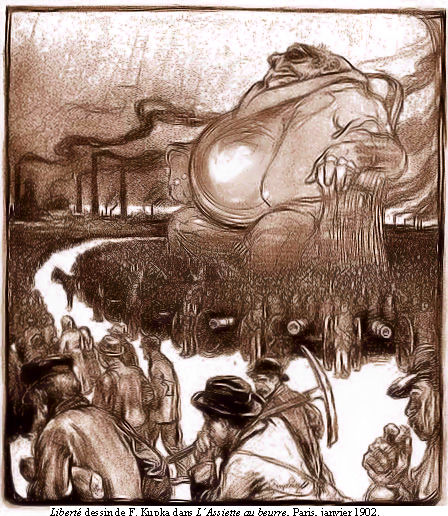

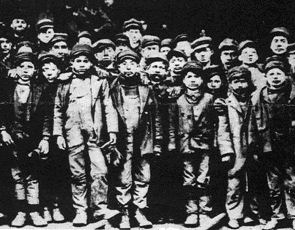
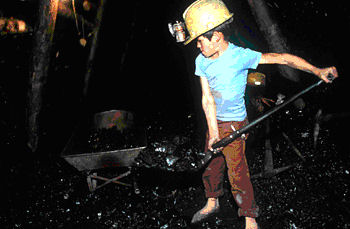




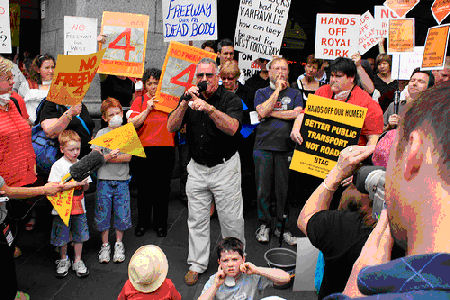
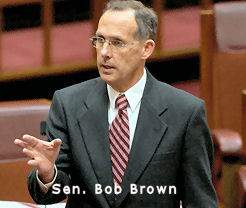





 who represents Tasmania in the Senate. (She is informed on peak oil and other energy issues and has some good discussions on her
who represents Tasmania in the Senate. (She is informed on peak oil and other energy issues and has some good discussions on her 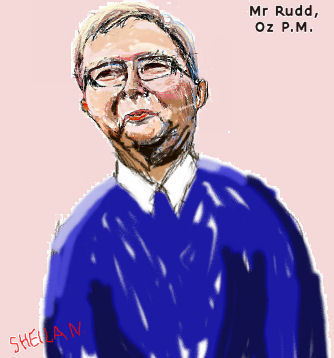



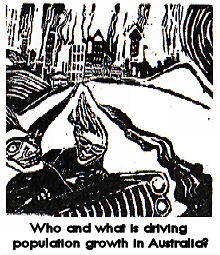
 (Photo of Mary Drost) The Brumby Government tried to undermine this crucial Melbourne Rally and to avoid criticism by announcing they were modifying their offensive Bill, so the mainstream journalists stayed away. But the alternative press is growing and we will not fall for such simple ploys. PEOPLE POWER AT WORK See
(Photo of Mary Drost) The Brumby Government tried to undermine this crucial Melbourne Rally and to avoid criticism by announcing they were modifying their offensive Bill, so the mainstream journalists stayed away. But the alternative press is growing and we will not fall for such simple ploys. PEOPLE POWER AT WORK See 

 "VCAT unelected, unaccountable and system has lost all respect from community." VCAT is Victoria's Civil and Administrative Tribunal. (Australia)
"VCAT unelected, unaccountable and system has lost all respect from community." VCAT is Victoria's Civil and Administrative Tribunal. (Australia)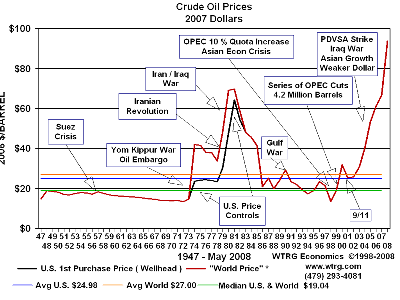
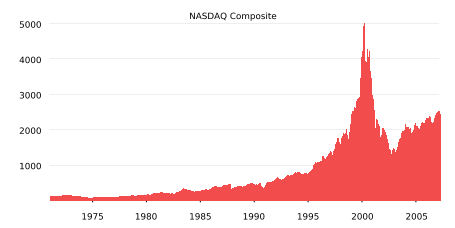
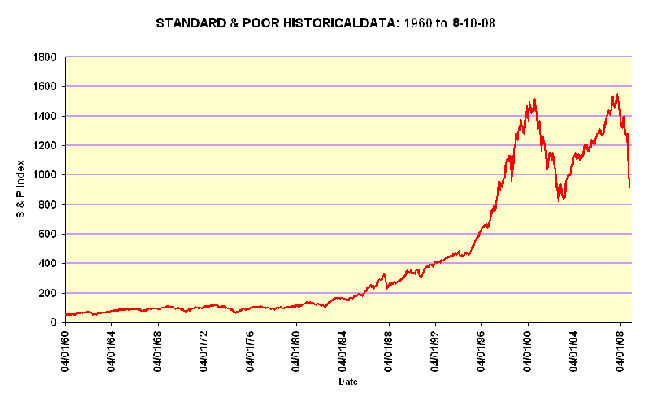
 Victorian Planning dictators aim at iconic Macedon Ranges (Hanging Rock region). Where will it end? Call to Victorians and the world ....
Victorian Planning dictators aim at iconic Macedon Ranges (Hanging Rock region). Where will it end? Call to Victorians and the world ....
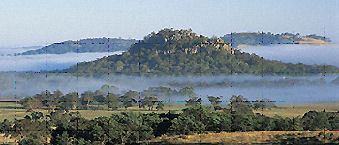
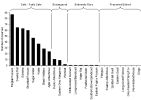 In 1845 the Mornington Peninsula was thick with wildlife: herds of kangaroos, wombats, wallabies, many echidnas and koalas and glorious birds, all unused to man and quite tame and inquisitive. ...wonderful trees, abundance of silver wattles, when in blossom, gilded the country and filled the air deliciously with their sweetness. Now population growth is turning the Peninsula into a desert. Research and graphs by Malcolm Legg and Hans Brunner.
In 1845 the Mornington Peninsula was thick with wildlife: herds of kangaroos, wombats, wallabies, many echidnas and koalas and glorious birds, all unused to man and quite tame and inquisitive. ...wonderful trees, abundance of silver wattles, when in blossom, gilded the country and filled the air deliciously with their sweetness. Now population growth is turning the Peninsula into a desert. Research and graphs by Malcolm Legg and Hans Brunner. 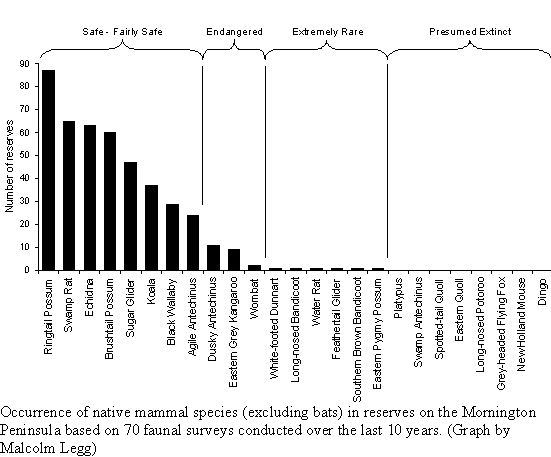
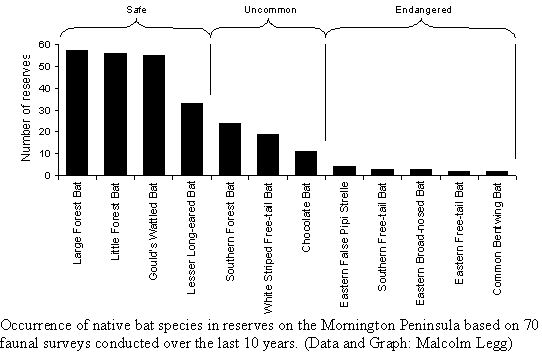

Recent comments